- Home
- catt dahman
Wild Boys: Six Shooters and Fangs Page 2
Wild Boys: Six Shooters and Fangs Read online
Page 2
Tell's eyes looked to the door of the shop where she had gone. "And they run their mouths, and someone is always wantin' to mix up.”
“I see,” said Doc as he nodded with understanding, “so the tempers begin to blaze."
Tell knew that a Southern gentleman such as Doc would understand. “That's it. First man said something obscene, and another man killed him dead as dog shit for saying it. Second and third men argued over her, as if either had a chance in hell, and they killed each other.”
“Good riddance, no doubt," Doc said, amused at Tell's story.
Tell raised an eyebrow. “Fourth died trying to defend her honor, and the fifth died greatly insulted by her when she refused to be introduced to him.”
“How'd he die?” Kit grinned.
"He called her a whore when he got so mad; he said that like a lot of sporting women, she set her price too high."
"What a scoundrel," Doc said indignantly. In the South, a man might be brutally whipped for insulting a lady in such a manner and justifiably so. “He was a piece of trash."
Tell agreed.
“And?" asked Kit as he prodded the man.
"The fellow got his comeuppance. The sumbitch killed the man trying to defend her honor, but Miss Masterson's brothers went after him. I didn't ask much about it, but Patrick, he's the wild one, said he cut the fellow's heart out."
"Before or after he was dead?" Doc grinned wickedly.
“Before," Paris said and looked up again, " I wouldn't expect any less from any real man. And I seem to remember the Masterson clan as good men who repay in kind." He nodded his rarely given, dark approval.
“Even as marshal, you let it go?" Kit asked.
“Justice and peace are sometimes lookin' the other way. You know that as well as I do," Tell said to Kit, and the other two silently agreed.
“ Sometimes justice is hard and cruel."
"A cruel lovely woman with a cold heart. Yes, justice can be a cruel jealous woman who leaves heartache in her wake,” Doc said in his poetic way.
"I say let it go. 'Sides, eventually, I'd have had to kill the fellow myself," Tell said off-handed.
“Anyone learned their lesson?" Kit asked.
“Hell, no. And I don't guess she cares that they die alt around her feet.”
“Lovely, but without mercy," Doc said. His voice was full of curiosity and interest.
Fallon's eyes narrowed a second, and then he resumed carving on the railing.
“I wouldn't fight over a woman," Kit declared.
"That's my stake in it," Tell agreed, "ain't no woman worth my life.”
"Now, Tell," Doc admonished, tipping his hat back to squint into the sun, “you never know what you might do one day.”
Fallon wiped away the last of the thin slivers of wood, didn't bother to appraise his own work, and turned to look into the sun, just as Doc was saying, "You just never know."
Paris was straightforward. Doc liked to bluff and out maneuver an opponent, but Paris didn't bluff; he didn't play games, he killed straight out, same as he spoke. What Doc said was true. One never knew.
Doc meant to say something, but at that moment, the woman came out from the shop and into the day's sunlight. Tension rose.
Kit was admiring Paris' carving but looked up to see the woman. She was beautiful with her long blond hair improperly, unfashionably streaming down her back. Her figure was an hour-glass shape beneath a sea-green taffeta, and her face seemed cut of stone so well defined and sharp was it, and her flushed cheeks made her look like a marble statue come to life. And her eyes, impossible to describe the color, were hauntingly lovely, a funny greenish-grey color, unsettling color. They were like the spring sky right before a storm when the heavens turn that greyish green.
“Yellow color and you know it's going to be a windy one,'” Doc spoke in Southern poetry.
With a flash of taffeta, she disappeared into another shop. Doc's eyes were twinkling uncharacteristically.
Tell groaned, guessing his friend's intentions before Doc even knew them. Doc liked flamboyant women, loud, painted saloon wenches who could be as brash and bawdy as he was. He generally liked to be pursued but never chased skirts, yet he was staring longingly where the woman had stood.
"I believe that shop sells books. Perhaps, I might find some works by Mr. Shakespeare.” Before anyone could get over the surprise, much less talk sense into the man, Doc followed the woman into the shop, and the door rattled closed behind him.
"He ain't never acted that away," Tell said, "it's like she puts a spell on some men." He huffed loudly and made growling noises.
“I wouldn't have thought it," Kit agreed. “He just don't chase skirts.”
Paris grimaced, "Like I said, you don't ever know what you might do."
“I can say it will never be me." Tell watched the closed door.
He knew it. There would be trouble.
Chapter 2
Francis Masterson
Inside the shop, Frannie Masterson ran her light fingertips over the spines of the books that were on the shelves, but there were very few to look at. What books she found, she had read many times already. Her father had instilled in her a love for literature that far exceeded her feelings for Latin and mathematics, which she found dull. For a few years she had studied in the East: struggling through music, art, and dance and learning all of the proper manners and how to ride English. She had gratefully returned West where she could read, uncensored, and ride how she pleased.
Only coming to town was unpleasant because the marshal glared at her and refused to speak and random, coarse men kept insulting each other and her and then shooting it out. Which made no sense
As was her custom when in town, she didn't look around but minded her own business; she didn't see Doc Holliday saunter into the shop. He walked over and reached out to examine a book.
In tight black trousers, a starched white shirt, and black duster, he cut an impressive figure. His black hat and darkish hair made his berry-colored eyes huge and liquideous.
Frannie cast a quick glance in Doc's direction and instantly thought that he was a very handsome man. She wasn't interested, but at least some men still dressed properly and knew how to bathe the dust and grime away.
He saw her surreptitiously look at him but continued looking at the books. He spoke, “Have you read Leather Stocking Tales?”
“Yes.”
“James Fenimore Cooper is a very good writer, I think," Doc said to her.
“Very."
“I have trouble finding really good pieces of writing. Do you read Shakespeare?"
She thumbed through a volume, “Yes, I do."
"I particularly like Othello.”
Frannie at least admired his persistence, but she was not impressed. She didn't wish to encourage him. Still, she was a little amused and added, "I wasn't aware that gunmen read literature."
Doc held back a chuckle and replied, “I do. Late most afternoons, I meet my friends in the Golden Saloon, and we talk about things: literature, philosophy, and the nature of man...between the cards, I mean."
She didn't know if he were pulling one over on her or not, and so she looked at him in total disbelief. Moreover, Frannie resented his freshness. "That is most unusual."
"It is hard to find men of intelligence, I agree, but I have been most fortunate."
His smooth southern voice was hypnotic, his eyes beautiful, his manners charming, but he was breaking formality. Her own eyes narrowed as she decided that he was probably a slick con man. "Few educated men come to Texas," she told him.
“Odd things happen, do they not?"
"And you meet in a saloon?" She knew that talking to him was most improper.
Doc smiled disarmingly with mischief in his eyes, his perfect white teeth gleaming. “It's a wonderful place for our talks right there where we can play cards and drink. And if we disagree as we talk and the argument turns violent, why we can shoot it out right there.”
“
That’s....” she began as she stared, wide eyed. He was teasing her; why the fresh-mouthed man was brash indeed! “You gunfight over books and philosophy?”
“The men I talk with are my friends, and we'd never raise guns to one another. I'd like to call you a friend, as well.”
Frannie realized that the conversation had turned personal and was more than a little improper. Her father would have a fit, and rightly so. ”That's quite interesting. No thank you." She turned away and feigned disinterest.
“I often seem to find educated men in my travels, but educated women are rare. I attended dental school in Baltimore,” he added. Doc was aware that she was having a problem with him, but he wasn't sure what to make of her. She acted bored, but there was something else there, and he didn't know what. "Forgive me, Ma'am, as I have forgotten my manners. I am Doctor John Henry Holliday of Georgia."
The title before his name made some impression on her, but he wore his guns as easily as his mustache; she knew what he was. But he was a gentleman, after all. That was confusing. She had heard of him before and knew him by reputation and name. He was a scoundrel. She brushed past him, saying, "Excuse me."
Doc saw her eyes become icy and noted that her body went tense. He couldn't expect a lady to talk to someone with his tarnished reputation. He felt much like he had been justifiably slapped. “I apologize; I should have asked someone to formally introduce us.” He had treated her disrespectfully, the same as those manner-less men that Tell Starr had told them about.
Eyes like odd grey-green ice, she glared and said, “I do not need an introduction, sir. I would not ask to make your acquaintance, and I don't intend on having introductions. If I choose to meet a man, I present myself, sir, with no silliness."
"My mistake," Doc snapped, stung by her venomous words. He had been very much out of line, and she had embarrassed him with that knowledge which she tossed into his face. She had not given him a bit of encouragement, but he had pushed. When last had he been shamed like this, he wondered.
His three companions were waiting outside for him, their faces full of questions.
Tell looked self-satisfied. "Didn't I warn you?"
"Welt, you survived it at least," Kit grinned.
Tell snorted, and Fallon had started a new carving.
Doc paled with anger. "It's nothing against the lady," he told them with his jaw tensed, "but she cuts to the quick. Educated, quick witted, and a sharp tongue.”
"You're as mad as a snake. I can see it plain enough," Tell announced.
"She's like sunshine and then like ice. And she's lovelier up close, but she can fling out words that cut like a knife. Damn," Doc muttered
Kit could see that Doc hadn't expected to get shot down by this woman, not with his charms, and Kit smiled to himself. All the whores flocked to Doc; this was a nice change that tickled his funny bone.
Fuming, Doc adjusted his hat. "She is unusual. You don't find many like her."
"Well, I hope you let it go," Tell stated firmly, "don't go trying to pursue her, or you'll get madder. She ain't like them purty whores always chasing you.”
"I'll think that advice over."
“Real mad,” Kit said.
“That I am, gentleman, but not at the lady. Indeed, I have been made aware again that not everything can be turned to our advantage, and perhaps I am not as endearing to women as I would believe myself to be.”
“And you ain't mad at her?" Tell asked as he was fuming again.
"I like to be put in my place occasionally," said Doc as he finally grinned.
Frannie came out of the shop, and three pairs of eyes followed her; Fallon didn't look up. Frannie greeted some women that she knew, paused to peek at a tiny baby that one lady held, and smiled brilliantly.
Doc Holliday's mouth dropped open as his eyes went huge. “I will be damned," he breathed, "would you just look at that."
"Thought you weren't impressed," Fallon said since he could read Doc easily. The man's low voice dripped sarcasm.
"l’m not.”
"She’s a pretty piece of baggage," Kit appraised her, "she sure is if you ask me."
"We didn't," Tell replied with a frown.
Her face was flushed, but she still had a beautiful smile. With a perfect bone structure and her strange green eyes that were framed by arched eyebrows and a fan of eyelashes, she resembled a cat, pampered and proned to either a nasty temperament or purring. Only her jaw was not cat-like, not pointed, but strong and kind of squared. Amused by something the baby did, Frannie threw her head back uninhibitedly, let her cascade of blond curls fall over her shoulders, and laughed musically.
“God A'mighty,' Doc whispered.
Even Fallon looked up at the awe in Doc’s voice. He looked her over most critically.
"Oh, shit," Tell muttered suddenly, “shit on a damned stick." He instinctively moved his coat back from his holsters and adjusted his braces. He squinted to see if the approaching men were heeled.
The pair was lurching along drunkenly, stumbling against one another, shambling, and tripping. They laughed loudly. One had a liquor-soaked shirt as if he had poured the bottle down the front. They honed in on Frannie Masterson and headed directly towards her.
The two women who had been talking to Frannie moved away, but she was like an animal gone tharn. She froze in place.
"Hey, there,” one man hailed her, pulling at the brim of his hat in a parody of manners. Unabashedly, he ogled her.
"Ain't it a fine day?" the other whooped, elbowing the first man. They looked at her familiarly.
Shivering in disgust, Frannie tried to by-pass them without a confrontation with her head held high and inviting them to go away and leave her alone. But they wouldn't let her by; instead, one reached out to grab her arm, another insult.
She wasn't accustomed to this behavior. Men who had kept company with her always had displayed fine manners, and her brothers and the ranch hands treated her sisterly; her father would have it no other way. She was doted upon and protected, and allowed many things: naturally curious and headstrong, Frannie was allowed her intellectual pursuits, she rode astraddle a horse and wore trousers as she liked, and sometimes she went out mending fences with the ranch hands.
She enjoyed a unique lifestyle that was protected and free, and she was not naive. She was aware that these lowbred, drunk men could not be cajoled, convinced, or reasoned with.
“Take your hand off my arm," she said in a neutral voice.
“You ain't bein' friendly, " the man breathed foul air into her face as he spoke.
She made direct eye contact. "Remove your hand.”
The man who held her arm was called Courtney, and he looked hazily at Frannie. He didn't know what to think about her. “Looky here, Missy,” he said sternly.
“Ain't she cold?" the other one said.
Frannie didn't blink.
Tell's long-legged stride made both men look at him as he walked toward them. “You boys move along now. You're drunk, and you don't need any trouble,” he spoke as he adjusted his badge to catch their attention.
Tell was joined by his friends, all dressed in black pants and white shirts, long black dusters, and black boots. They were uncommonly tall men who walked catlike, sure of themselves. These men carried their formidable reputations in their eyes.
Frannie saw them for who and what they were.
The marshal seemed bothered by this situation. The one who had spoken to her in the bookstore reminded her of a dangerous snake, but now he had a look of amusement on his face. The third man, with intelligent, laughing eyes, was curious, and the fourth man gave Frannie the chills: he had no expression, except for eyes that glittered with blood lust.
A second passed. Two. Perhaps three. Two heartbeats.
No one saw him move. One second he was beside Tell, and the next, he uncoiled and unwound, putting a hand on Courtney's neck as one would hold a kitten. In the other hand, Paris held his carving knife. "I wouldn't move or breathe hard. This t
hing is so sharp, so much like a straight razor that if you take a breath, it'll slit your throat so fast that you will drown in your own blood."
Paris Fallon felt the barrel of a gun nudge his ribs a split second after he heard the snap of a pistol come from its holster. Slow. He grinned and didn't move but kept his eyes on his blade.
In response, Kit, Doc, and Tell had their own Colts out, lightning quick. Courtney and his buddy were surprised by the speed of the draws.
“That ain't anything,” Paris noted and smiled without any humor, “l could draw right now and kill you both before your friend could shoot me and before any of them could fire,” he told them honestly.
“I beg to differ with you," Doc interrupted, "I could kill them before you.
"Naw."
Kit frowned in deep thought and then added, “It would be close. I ain't sure which of you could kill them the fastest."
“Paris is gifted in the placement of Iead," Doc said admiringly.
“'One way to know for sure.”
“If this fool decides to breathe, we’ll never know, ‘cause I'll cut him," said Paris as his eyes narrowed. With a low, calm voice typical of him, he leaned in closer to the man he held at knife point and asked, “What's your name?"
"Courtney." The alcohol had done its humbling; his mind was groggy, and he was haphazardly trying to figure a way out of this, but his body was frozen with fear. He couldn't think of but one thing at a time, and that exquisite cold burning of the knife blade had his full attention.
“Courtney, I don't take you for a smart man," said Paris, and with the precision of a surgeon, he increased the blade's pressure.
Involuntary, Courtney flinched with pain and fear.
“See there, like I figured, you ain't smart. Didn't I tell you to keep still?"
“Uh-huh.”
"You stupid?"
"Yes?” It was a pitiful reply.
Doc grinned. It was rare to see Paris Fallon talk this much. Whenever he spoke, there were no wasted words, and it was always interesting. Often, he mused over what might have been had Paris been formally educated. Interesting.

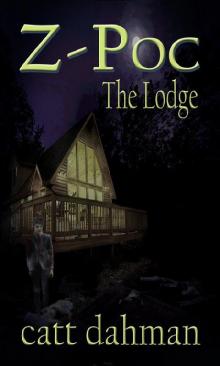 Z Poc: The Lodge
Z Poc: The Lodge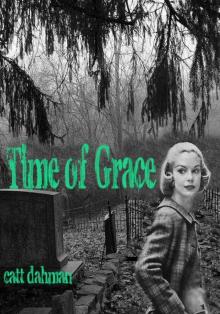 Time of Grace
Time of Grace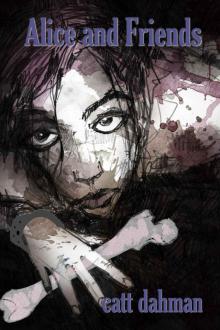 Alice and Friends
Alice and Friends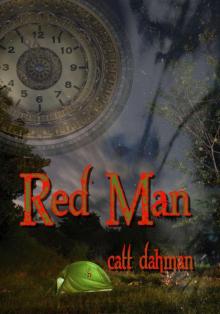 Red Man
Red Man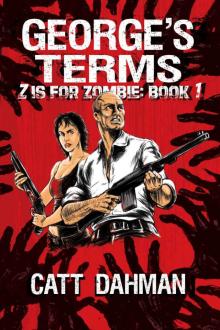 George's Terms: A Zombie Novel (Z Is For Zombie Book 1)
George's Terms: A Zombie Novel (Z Is For Zombie Book 1)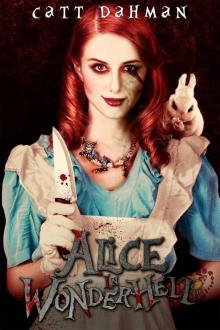 Alice In Wonderhell
Alice In Wonderhell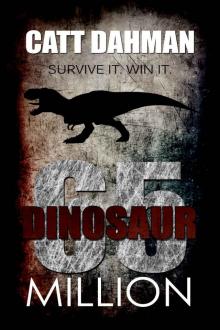 Dinosaur: 65 million
Dinosaur: 65 million Extinction Island 2
Extinction Island 2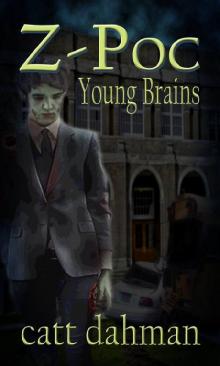 Z Poc: Young Brains
Z Poc: Young Brains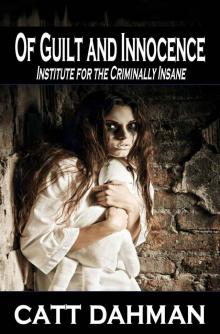 Of Guilt and Innocence: Institute at the Criminally Insane (Virgil McLendon Thrillers Book 3)
Of Guilt and Innocence: Institute at the Criminally Insane (Virgil McLendon Thrillers Book 3)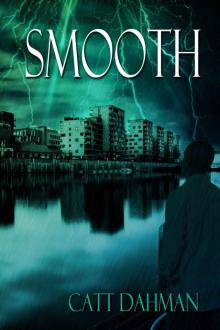 Smooth
Smooth Extinction Island
Extinction Island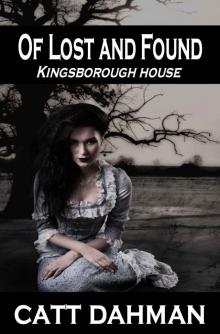 Of Lost and Found (the Kingsborough House): Kingsborough House (Virgil McLendon Thrillers Book 4)
Of Lost and Found (the Kingsborough House): Kingsborough House (Virgil McLendon Thrillers Book 4)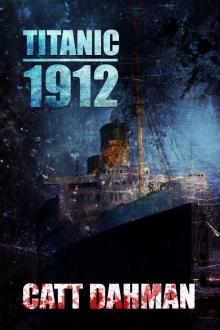 Titanic 1912: A Lovecraft Mythos Novel
Titanic 1912: A Lovecraft Mythos Novel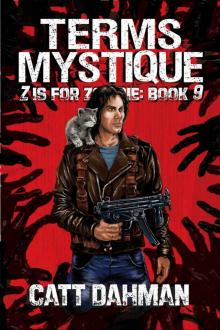 Terms Mystique: Z Is For Zombie 9
Terms Mystique: Z Is For Zombie 9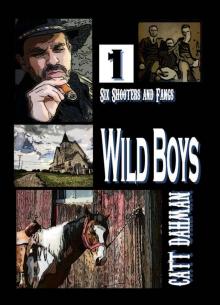 Wild Boys: Six Shooters and Fangs
Wild Boys: Six Shooters and Fangs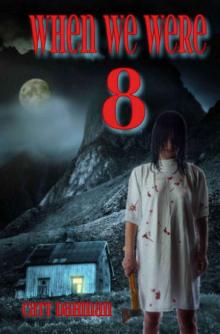 When We Were 8
When We Were 8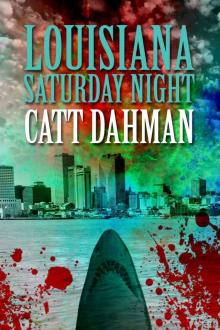 Louisiana Saturday Night
Louisiana Saturday Night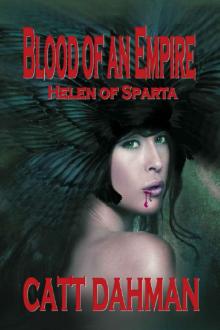 Blood of an Empire: Helen of Sparta
Blood of an Empire: Helen of Sparta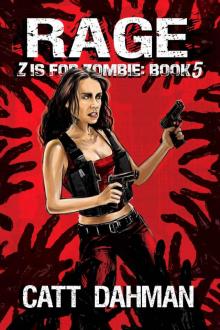 Rage: Z Is For Zombie Book 5
Rage: Z Is For Zombie Book 5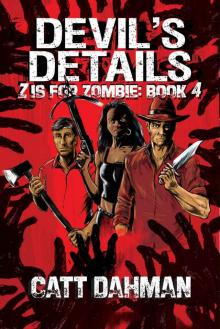 Devil's Details: Z Is For Zombie Book 4
Devil's Details: Z Is For Zombie Book 4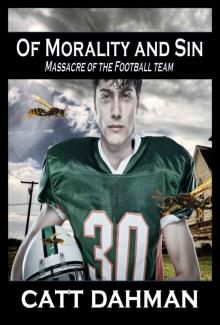 Of Morality and Sin: Massacre of the Football Team (Virgil McLendon Thrillers Book 7)
Of Morality and Sin: Massacre of the Football Team (Virgil McLendon Thrillers Book 7)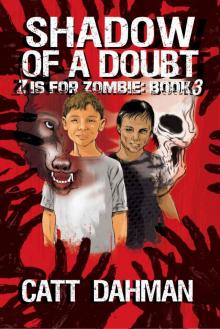 Shadow Of Doubt: Z Is For Zombie Book 3
Shadow Of Doubt: Z Is For Zombie Book 3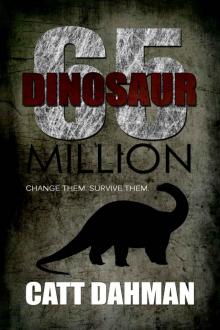 Dinosaur: 65 Million: Book 2 Change Them, Survive Them
Dinosaur: 65 Million: Book 2 Change Them, Survive Them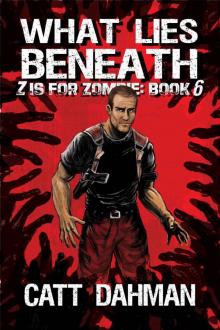 What Lies Beneath: Z is for Zombie Book 6
What Lies Beneath: Z is for Zombie Book 6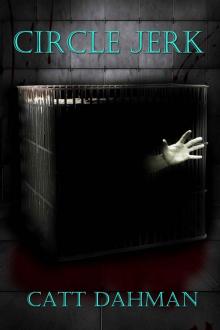 Circle Jerk
Circle Jerk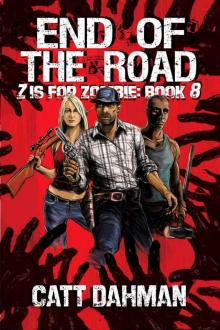 The End of the Road: Z is for Zombie Book 8 (Z is for Zombie: Book)
The End of the Road: Z is for Zombie Book 8 (Z is for Zombie: Book)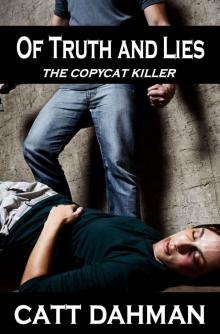 Of Truth and Lies: Hollingsworth Copycat Killer (Virgil McLendon Thrillers Book 5)
Of Truth and Lies: Hollingsworth Copycat Killer (Virgil McLendon Thrillers Book 5)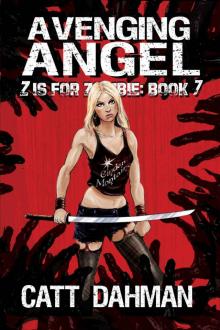 Avenging Angel: Z is for Zombie Book 7
Avenging Angel: Z is for Zombie Book 7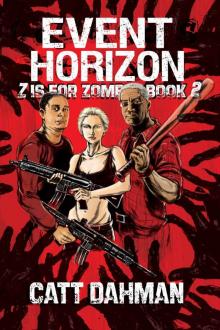 Event Horizon: Z Is For Zombie Book 2
Event Horizon: Z Is For Zombie Book 2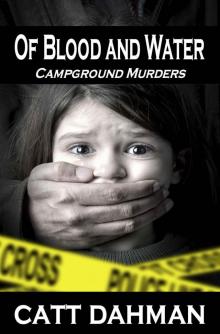 Of Blood and Water: Campground Murders (Virgil McLendon Thrillers Book 1)
Of Blood and Water: Campground Murders (Virgil McLendon Thrillers Book 1)